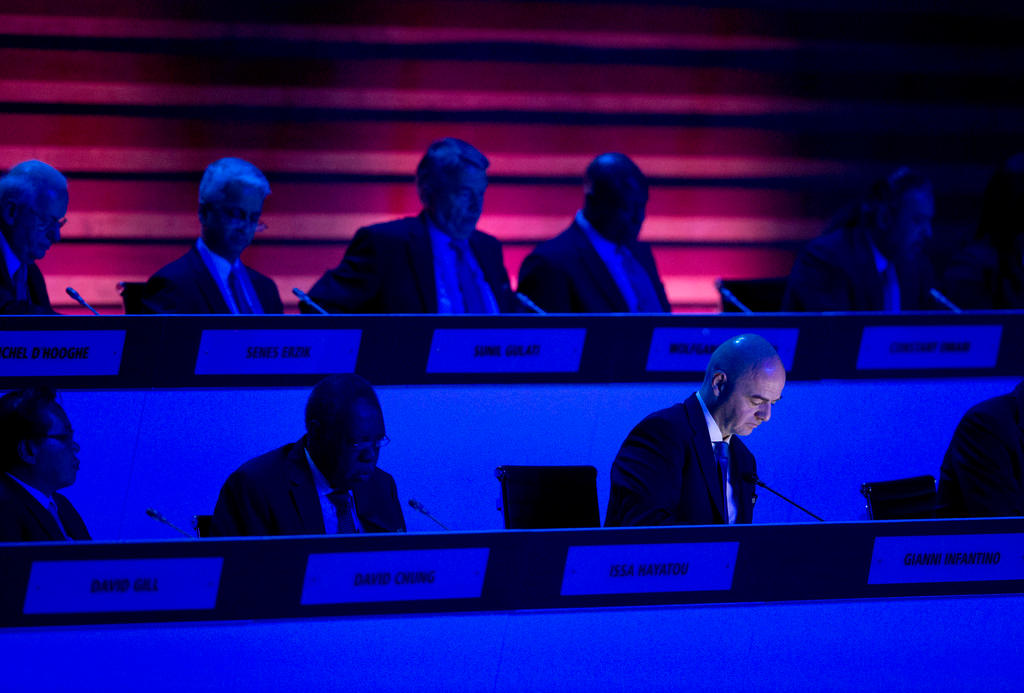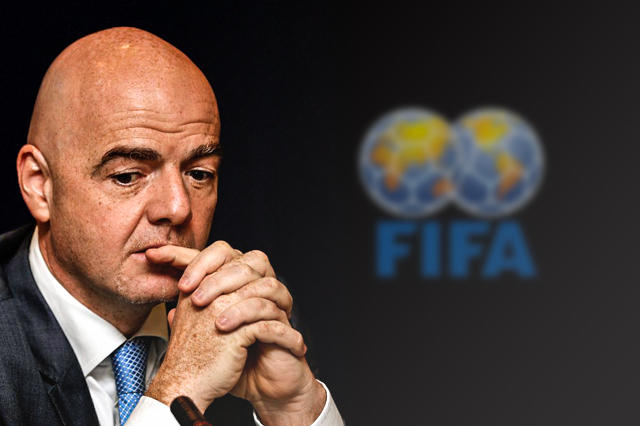Swiss FA gives cautious welcome to World Cup expansion

The Swiss Football Association believes the expansion of the World Cup from 32 teams to 48 will not water down the quality of the football tournament.
Zurich-based FIFA, world football’s governing body, announced on Twitter on Tuesday that the FIFA Council, its decision-making panel, had voted unanimously to expand the World Cup.
This change, pushed by the new FIFA President Gianni Infantino, will be introduced at the 2026 tournament. The format will include a first round of 16 groups of three teams, FIFA said.
Infantino said the move meant that “more can participate and many more will have a chance to dream”. “It’s not the 20th century any more. It’s the 21st century. Football is more than Europe and South America. Football is global,” he told reporters.
The change had raised concerns that the expansion would lower the overall standard of the tournament and make it too large and unmanageable. But the Swiss Football Association rejects this argument.
“When 16 additional teams are allowed to participate in the World Cup, it will give real hope to 30 or 40 nations that want to qualify for the final stages of the tournament and will make considerable efforts which will be a benefit to the game,” said spokesman Marco von Ah in a statement on Tuesday.
He added that the European football championship in 2016 in France, which had 24 participating teams, showed that adding teams does not lower the quality.
“In a Euro tournament with 16 teams, Albania would have had difficulty qualifying, but they were a bonus for the tournament and a difficult opponent, not only for Switzerland,” he said.
Von Ah said that based on current information the impact for Europe’s national sides would be minimal as only one or two additional places were likely.
Delighted Diego
Infantino, a Swiss, had initially suggested a 40-team tournament but then added another eight in October.
Football legend Diego Maradona, a frequent critic of Infantino’s predecessor Sepp Blatter, welcomed the change.
“I’m delighted by Gianni’s initiative because it gives chances to teams that otherwise would start the qualifiers knowing they had no chance of getting to the World Cup,” he told reporters after a veterans’ match at FIFA headquarters.
“It gives each country the dream and it renews the passion for football. It appears to me to be a fantastic idea,” added Maradona, who captained Argentina to World Cup success in 1986.
The expansion is likely to give the World Cup a big financial boost. According to the Financial Times, leaked internal documents suggest FIFA predicts the new format will increase revenues by close to $1 billion (CHF1 billion), based largely on projections that the expanded event will secure nearly $500 million more in television rights deals.
But not everyone is happy. The powerful European Club Association (ECA), which represents more than 200 European clubs, said the decision was based on “political reasons rather than sporting ones” and taken “under considerable political pressure”.
“We fail to see the merits of changing the current format of 32 that has proven to be the perfect formula from all perspectives,” it said in a statement, adding it would address the issue in more detail at the end of the month.
‘Fair play’
The pressure group New FIFA Now, which has campaigned for reform of FIFA, was also critical.
“It will not help development of the game or provide improved competitive opportunities for lower-ranked nations,” it said in a statement. “Instead, it will make a mockery of the qualification process for most confederations.”
The Swiss Football Association said it was mindful of the different arguments, “but we are certain that FIFA will listen to all critical voices and will draw up reasonable solutions and show fair play”.
The Swiss association said it favoured a tournament with 16 groups of three teams, as that should result in one fewer group match per team and lead straight to the direct elimination phase, which should generate “more suspense and attractiveness” for the World Cup.
The inaugural World Cup in Uruguay in 1934 featured just 13 teams and 17 matches. Sixteen teams took part, with eight more added in 1982 and, finally, another eight in 1998.
What do you think of a 48-team World Cup? Let us know in the comments section below.

In compliance with the JTI standards
More: SWI swissinfo.ch certified by the Journalism Trust Initiative












You can find an overview of ongoing debates with our journalists here . Please join us!
If you want to start a conversation about a topic raised in this article or want to report factual errors, email us at english@swissinfo.ch.